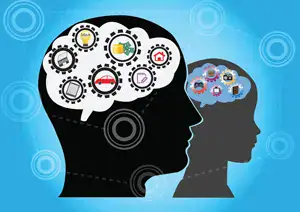
Digital Information Literacy
In a world where people get most of their news and information on the web, it is more important than ever that you learn to distinguish what is fact and what is fiction, and how to tell if a resource is trustworthy. The resources below will help you sharpen your critical thinking skills concerning online news and information. Please click here for an explanation of how to use many of the resources below.
Websites for Fact Checking
- Teen Fact-Checking Network - The Media Wise Teen Fact-Checking Network is a virtual newsroom made up of middle schoolers and high schoolers who use social media to debunk viral misinformation and share media literacy tips.
- FactCheck.org - FactCheck.org is a nonpartisan, nonprofit organization that monitors that accuracy of what is said by politicians and political candidates in TV ads, debates, speeches, interviews, and news releases.
- AllSides - Displays the top news stories from left, center, and right-leaning news sources side-by-side so that users can easily identify different perspectives and bias in reporting. They also provide special alerts on bias in reporting of current issues.
- Ballotpedia - A digital encyclopedia of American politics, and an unbiased resource for information on elections, politics, and policy.
Learning Modules
- Digital Media Literacy from GCF Global - Provides free, online learning modules concerning topics such as how to read a webpage, what is clickbait and how to identify it, and photo manipulation.
- Navigating Digital Information with John Green - Popular YA author John Green teaches you how to evaluate what you see on the internet in 10 short episodes.
- News Literacy Project - An e-learning platform that provides free tips, tools, and learning modules to sharpen your critical thinking and evaluation of online information.
Algo the Robot
Click here to play a quick game that simulates how algorithms can work. Algorithms track what your digital browsing choices are and become individualized, especially on social media.
Coping with the News and Other Resources
Talking with Children About Difficult Things in the News
Free resources on mindfulness and wellness for children, teens and caregivers
OK2SAY–State of Michigan Tip Line
